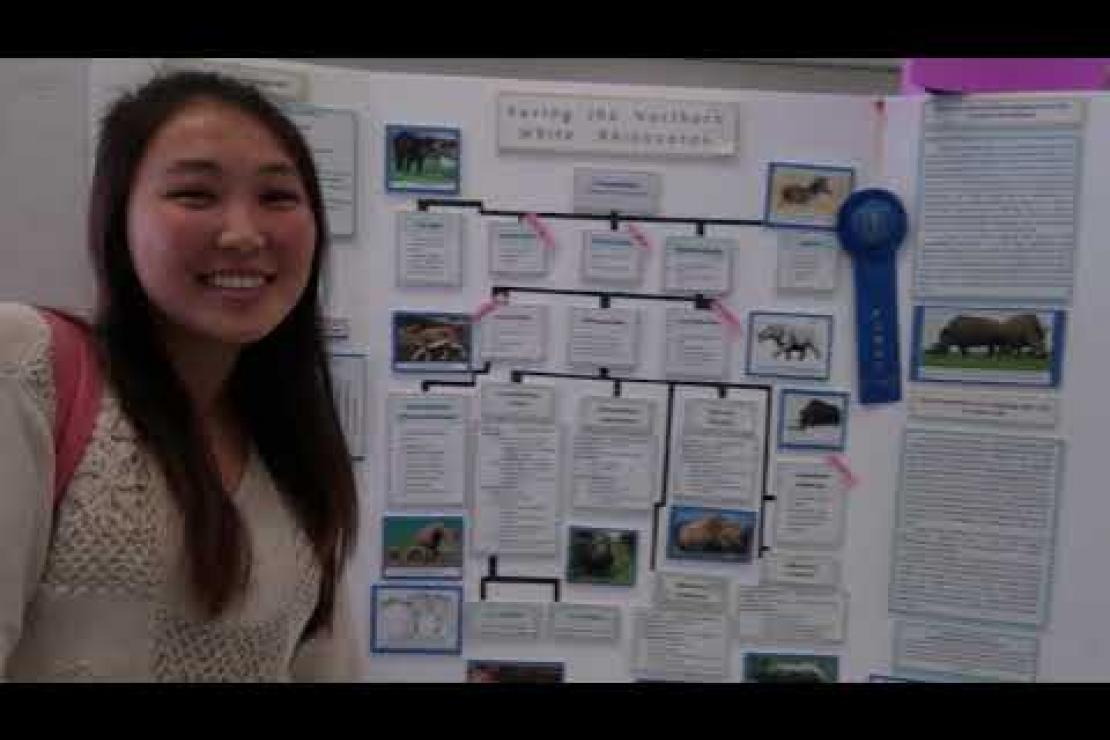Climate Change &Environmental Studies
Program Learning Outcomes

- Explain how the climate system operates and how we can use data from the past and today to model future changes.
- Discuss the impact of human activity on the climate system.
- Evaluate and interpret qualitative and quantitative data from multiple science, social science, and humanities disciplines to make informed decisions about climate change and other environmental issues.
Required Core Courses (10 units)
- ENV SCI 24 Global Climate Change (3 units) – offered in spring semesters
- PHILOS 28 Environmental Ethics (3 units)
- MATH 227 Statistics (4 units)
Elective Courses
Biological Sciences (4 units) – select one course
- BIOLOGY 003 Introduction to Biology (4 units)
- BIOLOGY 010 Natural History I (4 units)
Physical Sciences (4-5 units) – select one-two, including lab
- CHEM 056 Chemistry for Non-majors (4 units)
- CHEM 060 Introduction to General Chemistry (5 units)
- EARTH 001 Earth Science (3 units) AND EARTH 002 Earth Science Lab (2 units)
- GEOG 001 Physical Geography (3 units) AND GEOG 015 Physical Geography Lab (2 units)
- GEOLOGY 001 Physical Geology (3 units) AND GEOLOGY 006 Physical Geology Lab (2 units)
Social Science (6 units) – select any two courses
- ANTHRO 102 Cultural Anthropology (3 units)
- COMM 122 Intercultural Communication (3 units)
- ECON 1 Principle of Economics (3 units)
- ECON 11 Economics of Globalization (3 units)
- GEOG 2 Cultural Elements of Geography (3 units)
- GEOG 7 World Regional Geography (3 units)
- POL SCI 60 Introduction to Globalization (3 units)
- SOC 2 American Social Problems (3 units)
Core Class Descriptions
ENVIRONMENTAL SCIENCE 024 Global Climate Change (3 units)
Climate change is an important and controversial topic. This course covers how the climate system operates today, records of Earth's ancient climate and environments, evidence for modern climate change, and potential impacts to environments and societies based on current predictions.
Prerequisite: None
Transfer: UC/CSU
PHILOSOPHY 028 Environmental Ethics (3 units)
Relationship between human beings and the wilderness; human obligations to environmental systems. Study of “traditional” normative theories of ethics, morality, and rights, as applied to issues involving animals and other species. Critical examination of environmental ethical theories. Consideration of the value and moral status of the environment (animals, plants, ecosystems).
Prerequisite: None
Transfer: UC/CSU
MATH 227 Statistics (5 units)
This course is an introduction to probability, measures of central tendency and dispersion, descriptive and inferential statistics, sampling, estimation, and hypothesis testing. Analysis of variance, chi-square and student t-distributions, linear correlation, and regression analysis are also presented as topics.
Prerequisite: MATH 125 or equivalent
Transfer: UC/CSU
New Classes in this Major
BIOLOGY 010 Natural History I (4 units)
Students examine biological principles including evolution, adaptation and scientific methods using the local environment. Includes the role of climate in the distribution of plant and animal species and a systematic survey of the common local plants, aquatic and terrestrial invertebrates, birds, and mammals. Note: surveys of the local ecosystems are done during off-campus field trips. Students must provide their own transportation.
Prerequisite: None
Transfer: UC/CSU
CHEMISTRY 056 Chemistry for Non-majors (4 units)
This course presents inorganic and biochemical chemistry for non-science majors; students learn about basic chemical principles and how they relate to current environmental issues that shape society, both globally and locally. As they gain a scientific understanding of some challenges that face humanity, such as climate change, our growing energy demands, and future health needs, students analyze how problems and solutions are impacted by human activity. Students perform experiments where they learn common laboratory techniques, including safe handling of chemicals and proper use of laboratory equipment to gain hands-on experience with how humans affect the chemistry of the Earth's natural systems. Course Note: This course does not fulfill the prerequisite for Chemistry 101.
Prerequisite: None
Transfer: CSU


